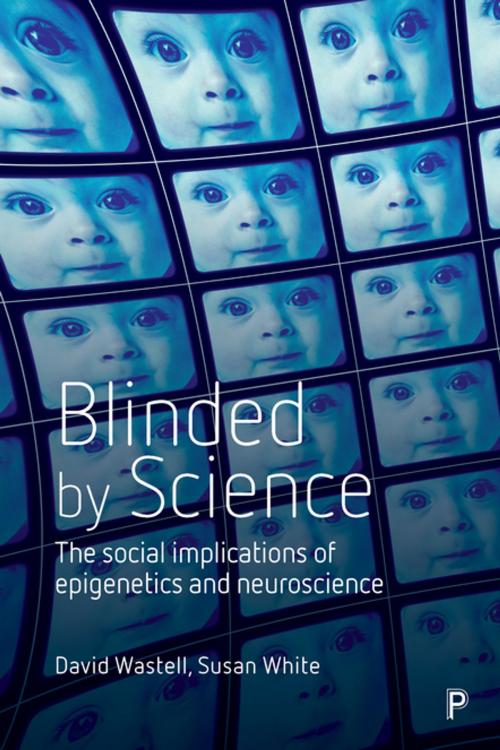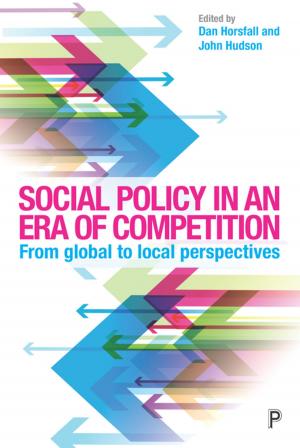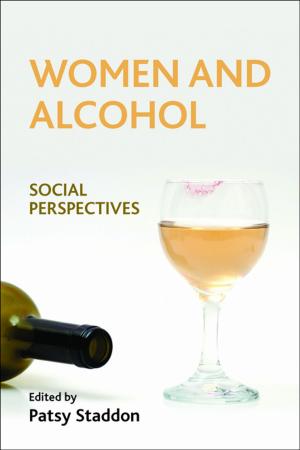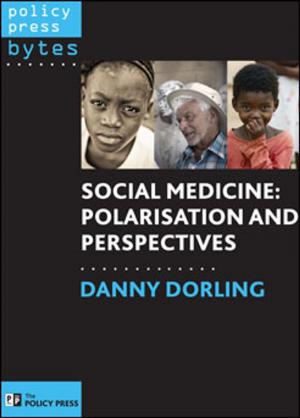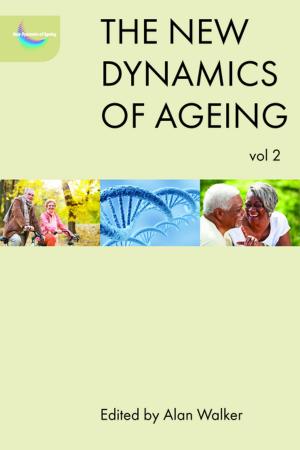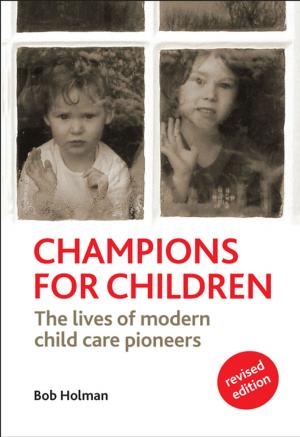Blinded by science
The social implications of epigenetics and neuroscience
Nonfiction, Social & Cultural Studies, Political Science, Politics, Social Services & Welfare, Government, Social Policy, Social Science| Author: | Wastell, David, White, Susan | ISBN: | 9781447322375 |
| Publisher: | Policy Press | Publication: | March 15, 2017 |
| Imprint: | Policy Press | Language: | English |
| Author: | Wastell, David, White, Susan |
| ISBN: | 9781447322375 |
| Publisher: | Policy Press |
| Publication: | March 15, 2017 |
| Imprint: | Policy Press |
| Language: | English |
In recent years, new areas of biology, especially epigenetics and neuroscience, have enthralled the public imagination. They have been used as powerful arguments for developing social policy in a particular direction, from early intervention in the lives of disadvantaged children to seeking 'biomarkers' as identifiers of criminality. This timely book, written by leading commentators, critically examines the capabilities and limitations of these biotechnologies, exploring their implications for policy and practice. The book will enable social scientists, policy makers, practitioners and interested general readers to understand how the new biologies of epigenetics and neuroscience have increasingly influenced the fields of family policy, mental health, child development and criminal justice. The book will facilitate much needed debate about what makes a good society and how best to build one. It also draws attention to the ways that the uncertainties of the original science are lost in their translation into the everyday world of practice and policy.
In recent years, new areas of biology, especially epigenetics and neuroscience, have enthralled the public imagination. They have been used as powerful arguments for developing social policy in a particular direction, from early intervention in the lives of disadvantaged children to seeking 'biomarkers' as identifiers of criminality. This timely book, written by leading commentators, critically examines the capabilities and limitations of these biotechnologies, exploring their implications for policy and practice. The book will enable social scientists, policy makers, practitioners and interested general readers to understand how the new biologies of epigenetics and neuroscience have increasingly influenced the fields of family policy, mental health, child development and criminal justice. The book will facilitate much needed debate about what makes a good society and how best to build one. It also draws attention to the ways that the uncertainties of the original science are lost in their translation into the everyday world of practice and policy.
